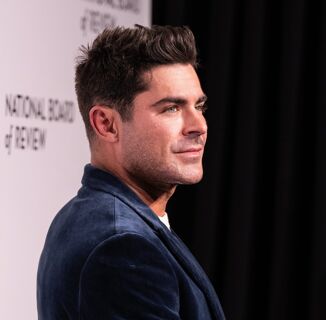In a surprise twist at the end of October, the first minor in the country to be charged under Russia’s anti-gay propaganda law won his appeal. Earlier in the year authorities charged him with posting photos of men holding each other on social media.
The 16-year-old, Maxim Neverov, was fined $760 dollars when the juvenile administrator found him guilty in August of “portraying propaganda of nontraditional sexual relations.”
Neverov’s attorney, Artem Lapov, claimed the commission did not have enough evidence to find him guilty.
“The court followed the assumption of innocence principle and decided that the offence was not proved,” Lapov said in a statement provided by the Russian LGBT Network, which had supported Neverov since he was initially charged. “Based on that, our complaints were satisfied and the decision of the Commission on Minors and the Protection of Minors’ Rights was abolished.”
Neverov himself said the verdict was unexpected.
“I was shocked, my lawyer was shocked, my mother was shocked,” he told INTO via email. “Everyone was in shock, and no one knew why it happened.”
Neverov told the Thomson Reuters Foundation that he had, in fact, already written a social media post saying “the court upheld the decision and that we’re ready to continue fighting for justice.” He had planned to publish the statement as soon as he lost his appeal.
But of course, he didn’t have to.
Leading up to the decision, a petition received more than 30,000 signatures in support of Neverov. When some congratulated him, others were critical of the high school student’s appeal.
“Some people wrote comments [on social media] that the decision was wrong and the court was bad, but there weren’t so many of those,” he said.
Neverov thinks the win could lift some spirits in civil society and the LGBTQ community but cautions that he thinks that would be temporary.
Svetlana Zakharova, a spokesperson for the Russian LGBT Network, remains hopeful. After the favorable verdict was handed down last month, Zakharova told Reuters, “This case shows that the justice system is aware that the implementation of the [gay propaganda] law often goes too far.”
Neverov’s ordeal first began in July when he was asked to go to his hometown’s police station. There, he was informed about the charges for the images he had posted on Vkontakte, a popular Russian social media site akin to Facebook.
“The photos showed guys hugging,” Neverov told NBC News at the time. “I didn’t publish them, just saved them in an album. One of the photos said, ‘Love is better than fucking.’ I saved them and forgot about them — just as tens of thousands of teenagers do all across Russia.”
Neverov deleted the images afterward. He said he was targeted because of his activism in the small town of Biysk.
“Officials don’t like what I do, and instead of fixing things that I and many people don’t like, they fine these people,” he told the outlet.
This appeal is the latest in Neverov’s legal victories. INTO reported in August that a court had struck down an earlier decision barring Neverov from organizing LGBTQ-themed events in his hometown.
He had applied for 12 different events shifting from pro-LGBTQ to pro-Russian President Vladmir Putin in a performance called “Gays or Putin.”
“I wanted to see how many of my applications would be approved,” Neverov told INTO at the time.
Since the Russian Duma unanimously passed the propaganda law in 2013, it has been used to target LGBTQ events, prides marches, and even activists. In August, authorities arrested 25 people after around 60 queer and trans community members came together at a rally in St. Petersburg.
And since the law came into force, anti-LGBTQ hate crimes have doubled. A recent poll found that 63 percent of Russians believe that a “group of people… seek to use LGBTQ issues to attack the spiritual fiber of Russia.”
Even under the law, Neverov’s activism for human rights continues in his town and in his country.
“We will continue to work,” he tells INTO. “This court case hasn’t affected my attitude towards the work and the country at all. Even if the decision was different, we all would have continued anyway.”
Help make sure LGBTQ+ stories are being told...
We can't rely on mainstream media to tell our stories. That's why we don't lock our articles behind a paywall. Will you support our mission with a contribution today?
Cancel anytime · Proudly LGBTQ+ owned and operated
Read More in Impact
The Latest on INTO
Subscribe to get a twice-weekly dose of queer news, updates, and insights from the INTO team.
in Your Inbox














